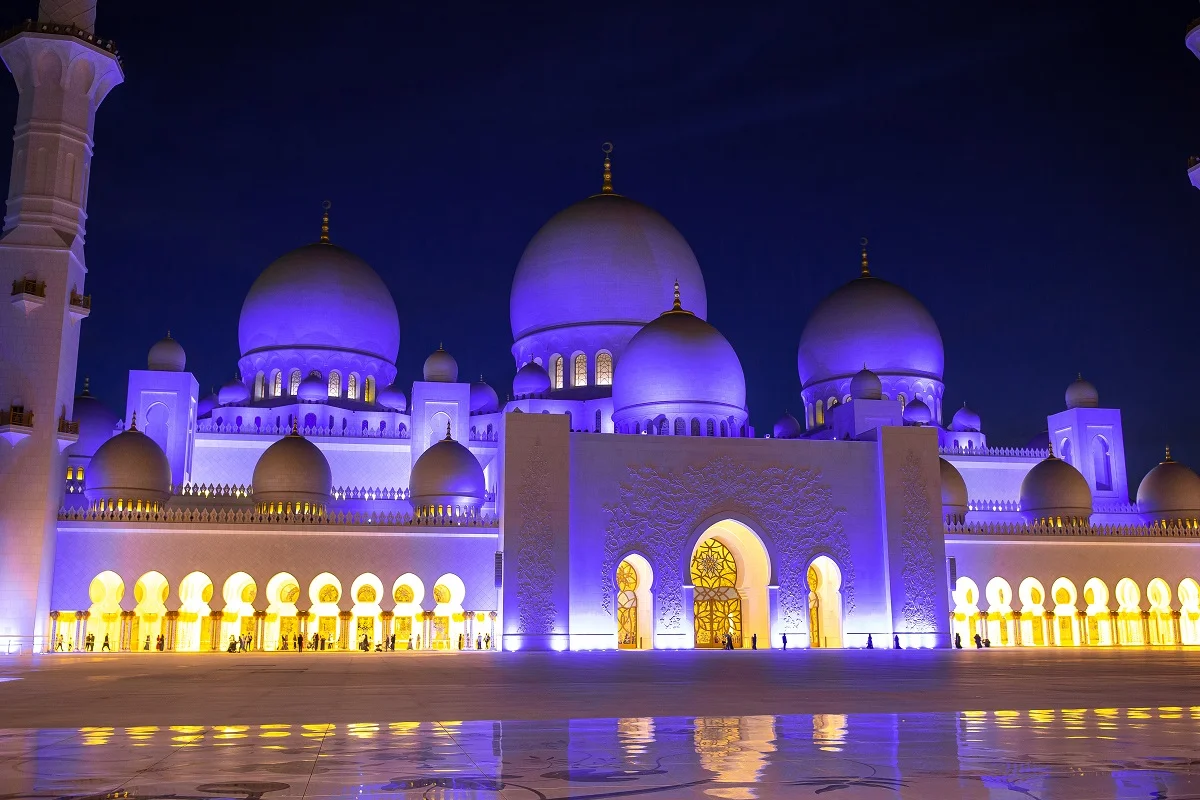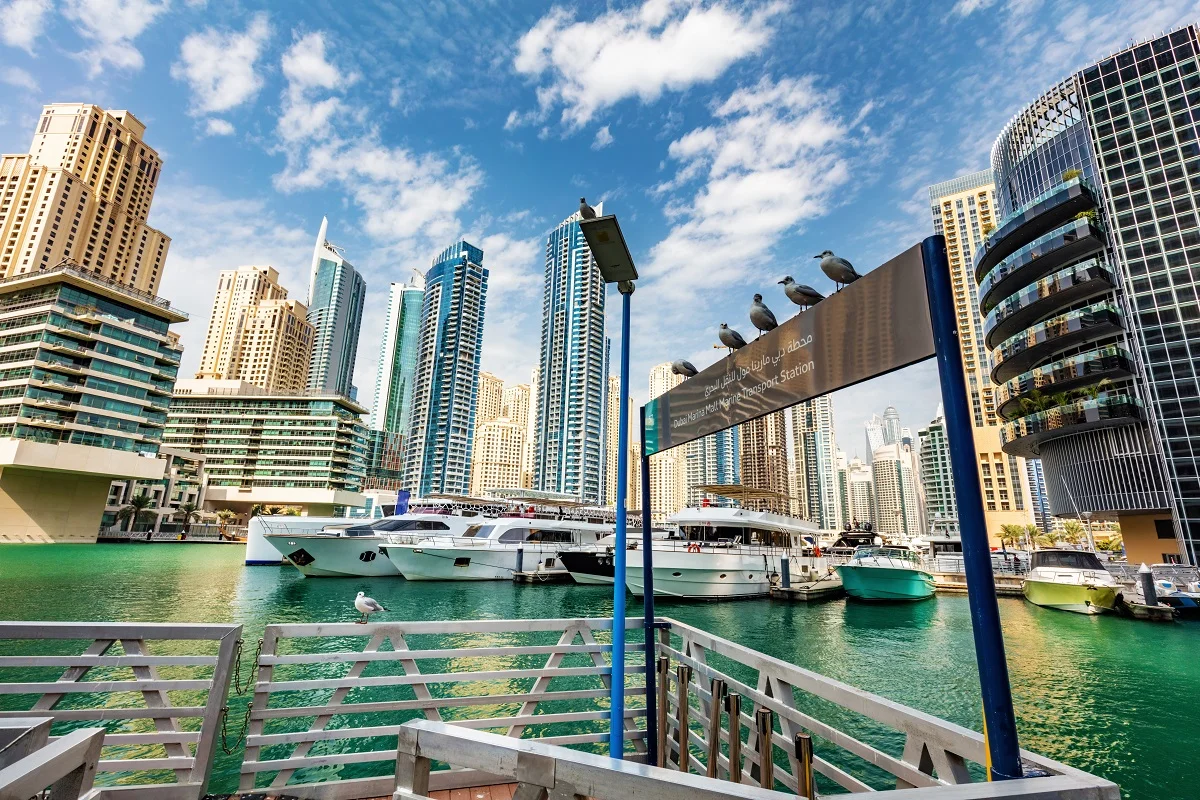
UAE Property Inheritance Rules
The UAE government actively attracts qualified and affluent foreigners by offering various incentives, such as a high standard of living, security, and quality healthcare. As a result, native Emiratis now constitute only one-sixth of the country's population. Foreign nationals can purchase property, use the country's banking system, and own various assets.
However, the UAE remains a predominantly Muslim country where local laws, in some cases, are intertwined with religious principles. This includes inheritance laws, which differ significantly for locals and expats.
In this article, we will explore the impact of Sharia law for property distribution in the UAE and discuss the specific processes for residents and foreign nationals.
Specifics of Inheritance in the UAE
In the United Arab Emirates (UAE), the inheritance system is governed by Islamic law (sharia or shariah law) and specific non-Muslim regulations. Under Sharia law, inheritance is distributed according to predetermined shares among family members, such as spouses, children, parents, and other close relatives. Typically, male heirs receive a larger portion compared to female heirs. Children and parents also have inheritance rights, but the distribution depends on the specific family situation.
Inheritance law in the UAE requires settling the deceased's debts using their assets before the estate is distributed among the heirs. Any bank loans, mortgages, utility bills, or taxes must be paid before dividing the inheritance. This process is managed by executors named in the will or court-appointed administrators, who gather all information regarding the deceased's debts and liabilities. Once the debts are fully settled, the remaining assets can be distributed to the heirs according to the will or the applicable law.
It is important to note that heirs are not personally liable for the deceased's debts. Their responsibility is limited to the value of the inherited assets. In other words, if the liabilities exceed the value of the assets, heirs are not required to cover the difference from their funds.
Inheritance For Muslims and Sharia Law
According to the Shia law of inheritance, the primary heirs are the closest relatives. If the deceased has brothers or sisters, their shares are allocated only after fulfilling the spouse's and children's rights. Only those with blood or marital ties to the deceased can inherit. The distribution of inheritance shares is as follows:
- Spouses. If there are children, the widow receives 1/8 of the husband's property after his death in UAE. If there are no direct heirs (children), she is entitled to 1/4.
- Children. Property distribution after a father's death in Islam is determined by the heir's sex. Sons receive twice as much as daughters. For example, if the heirs are one son and one daughter, the son will receive 2/3 of the estate, while the daughter will receive 1/3.
- Parents. The deceased's mother receives 1/6 if there are direct heirs and 1/3 if there are none. The father inherits the remaining portion.
While Muslims can draft a will, they cannot alter the fixed shares. A will can allocate up to 1/3 of the estate, with the remainder distributed according to Sharia rules. If the will contains provisions that contradict sharia, they may be contested in court. In such cases, UAE civil laws will apply, and the court may appoint an independent expert to assess the parties' financial situation and distribute the estate accordingly.

Inheritance for Non-Muslims in the UAE
A special law governs non-Muslims in the UAE, the “Personal Status Law” (Federal Decree-Law No. 41 of 2022). This law addresses issues related to inheritance, marriage, divorce, and custody and allows non-Muslim residents to determine the distribution of their estate through a will.
A will must be registered with the appropriate authority, such as the Dubai Courts (DIFC) or the Abu Dhabi Judicial Department (ADJD), to be legally valid. If a will is not registered, inheritance may be processed by default under UAE law, which stipulates equal distribution of assets between the spouse and children.
Key aspects of UAE inheritance law for expats and non-Muslims:
- Choice of applicable law. They can choose whether their estate will be distributed according to UAE laws or the laws of their home country.
- Advantages of a will. They can create a will that allows them to distribute their assets to individuals of their choosing, not just those defined by law.
- Distribution in the absence of a will. If no will is present, the assets of a non-Muslim will be distributed as follows: 50% to the spouse and the remaining 50% equally among the children, regardless of gender.
Challenges of Transferring Assets Without a Will
The difficulties of inheritance vary depending on adherence to the Muslim faith. All assets of a deceased Muslim are distributed according to sharia law in the UAE, regardless of the heirs' religion. This means that assets are allocated based on gender and kinship, and relatives not considered immediate under Sharia law cannot claim inheritance, even if they were intended beneficiaries.
For foreigners or non-Muslims, assets are distributed under Federal Decree-Law No. 41/2022, the primary inheritance law for expats in the UAE. According to this law, half of the estate is allocated to the spouse, while the remaining half is divided equally among the children, regardless of gender. The estate is divided between the deceased's parents if no children exist.
Additional Challenges:
- Asset inventory. Without a will, the process of inventorying assets becomes complex. Without the complete listing by the deceased, any assets located in the UAE may be overlooked and excluded from the initial property distribution. If such assets are later discovered, their subsequent distribution can only be done through the court.
- International assets. If the inheritance includes assets outside the UAE, their distribution will be governed by the laws of the country where they are located. However, in the case of significant differences in the laws of these countries, additional difficulties may arise, such as determining the heirs and their shares.
Inheritance Key Steps in the UAE
The process of obtaining property ownership rights for inherited assets in the UAE involves several stages, the primary one being the registration of the inheritance with the court. This can be done using the Dubai Courts' online platform through the Smart Petitions system.
After registration, it is necessary to upload documents in electronic format, including the will (if available), death certificate, passports of the heirs, and Emirates ID (for UAE residents). The court reviews the submitted documents and issues a decision on the distribution of the inheritance. This decision can be appealed in the appellate court.
Stages of the Property Ownership Process:
- Document Preparation. The following documents are required to claim the inheritance:
- Court decision on the distribution of the inheritance.
- Copies of the passports and Emirates IDs of all heirs.
- Certified translations of documents if they were issued outside the UAE.
- Proof of ownership of the property.
- Property Registration. After receiving the court's decision, the heirs must contact the Dubai Land Department to register the property ownership.
- Transfer of Property to the Heirs. In the case of the sale or transfer of the property, the heirs must obtain approval from the Investigation Committee. After document verification and payment of fees, the heirs are issued an electronic property ownership certificate.
- Сost of a will in the UAE. There is no inheritance tax in the UAE; however, fees are charged for the formalities:
- AED 1,000 ($272) for each real estate property registration.
- AED 250 ($68) for issuing a property ownership certificate.
- AED 10 ($3) innovation fee for each document.
- 4% of the property's value for the sale or transfer of ownership, including inherited property in the UAE (shared equally between the seller and buyer).
- AED 4000 ($1090) + VAT as a service fee for partners if the property's value exceeds AED 500,000 ($136,135).

How to Make a Will in the UAE
Drafting a will in the UAE for real estate is only available to residents with a visa confirming this status. The will must clearly specify the heirs and their shares and any possible conditions and restrictions, such as a desire to distribute the property following the laws of the testator's home country. All documents, including the will itself, must be translated into Arabic by a translator accredited in the UAE. The will must also be legalized at the consulate of the testator's home country. Without this, it will not have legal force. The following documents are required:
- The testator's resident visa.
- Two certificates from Muslims confirm the authenticity of the will.
- Identification documents of the testator and the witnesses.
- Payment of a fee of 60 AED ($17).
Common mistakes in drafting a will:
- Absence of a signature. The testator and witnesses must sign the will if required by law.
- Inappropriate witnesses. Witnesses must be adults and not have an interest in the inheritance.
- Lack of notarization. In some emirates, especially if the will is drafted by a foreigner, notarization is required.
- Incorrect wording in the will:
- “My property," without specifying what is included (real estate, financial assets, etc.).
- “To be divided equally,” without specifying persons.
- “I leave everything,” without clarifying how debts should be handled.
- “I leave my apartment,” without specifying which apartment (if there is more than one).
After obtaining all the necessary documents, the will for property inheritance in Dubai is registered with the Land Department or in court. Registering the will ensures that the real estate will be transferred to the heirs without complications or delays.
Author
I write informative articles about real estate, investments, job opportunities, taxes, etc.























